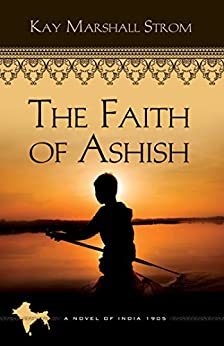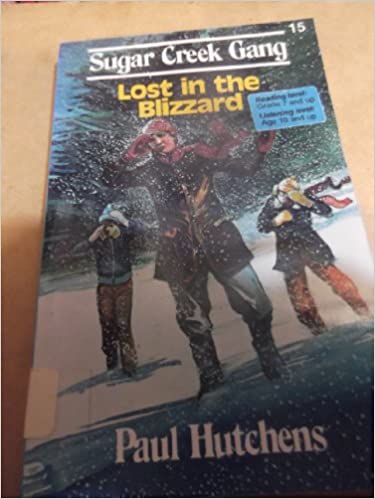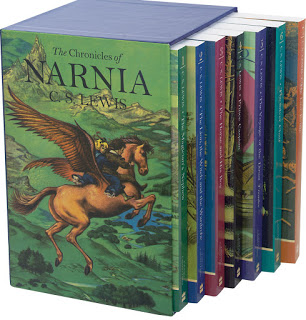Reading For The Soul
I know that most of the time people read fiction for entertainment. Others say that we also read it to have our biases confirmed. So we choose to read stories that reinforce a “good wins out” motif, or a “love conquers all” theme or whatever we agree with.
Some people do enjoy the challenge of learning about new and different people and places. One of the more eye-opening books I ever read was Emile Zola’s Germinal, a novel set in France in the 1860s about a coalminers’ strike. It’s evocative and thought-provoking and reveals struggles of people in places and in cultural conditions that are not like my own.
 More recently I’ve enjoyed Kay Marshall Strom’s novels such as The Call of Zulina, set in Africa, or The Faith of Ashish, set in India, both in an earlier century. Or there are novels such as Jill Stengl’s Shadows of Yesterday (Until That Distant Day Book 1), a novel set in France during the early days of the republic.
More recently I’ve enjoyed Kay Marshall Strom’s novels such as The Call of Zulina, set in Africa, or The Faith of Ashish, set in India, both in an earlier century. Or there are novels such as Jill Stengl’s Shadows of Yesterday (Until That Distant Day Book 1), a novel set in France during the early days of the republic.
I suppose most historical novels would fall into the category of ones that introduce the reader to new places and peoples and cultures. James A. Michener’s numerous (and lengthy) historical novels such as Hawaii and Mexico and Alaska and Texas and Poland and many others, certainly introduce readers to people who lived in different times and cultures, in a way that feels a bit like exploring.
However, I think there is another reason to read—one which I’m calling “for the soul.” Some books go beyond the element of feeding our mind or feeding our pleasure center. They resonate with us because they say something true that is deeper and greater and longer lasting about life, about our relationship with God.
When I was a kid, I grew up with that kind of fiction. One of our favorite books, which we read aloud as a family was Aurie’s Wooden Leg by Lionel A. Hunt. All three of us children enjoyed that book, to the point that my brother went on a search a few years ago to find copies of the now out-of-print book. He succeeded and bought us each a copy. When I re-read it, I was amazed at the quality of the story.
But apart from that, there is no pretense to hide the spiritual elements. This is a book about a sister’s heart for her twin brother who doesn’t “understand how to get to heaven yet.” It’s got some surprises and suspense and tragedy and danger. But it doesn’t leave the primary purpose—that this little girl cares about her brother’s eternal destiny.
 Other books that my brother owned but were also included in our family reading were ones by Paul Hutchens. The Sugar Creek Gang books “follow the legendary escapades of Bill Collins, Dragonfly, and the rest of the gang as they struggle with the application of their Christian faith to the adventure of life.”
Other books that my brother owned but were also included in our family reading were ones by Paul Hutchens. The Sugar Creek Gang books “follow the legendary escapades of Bill Collins, Dragonfly, and the rest of the gang as they struggle with the application of their Christian faith to the adventure of life.”
Bill, as I recall, was the narrator of the stories, and he was always so honest about his own struggles to do the right things, and his admiration for their leader, Jim, and their young Bible-quoting member, Little Jim. I found Bill’s honesty refreshing, even as the truth and values of Scripture were reinforced. Of course, I didn’t think in those terms as a kid. I just liked those books.
As I look back now, I can see how those stories did nurture my soul. Same with the books by Kay Marshall Strom, and many others by Christians as Christian fiction began to grow and become well-written stories that portrayed life realistically.
Sure, there are stories that make the effort but are poorly written or preachy or contrived. But the books that tell a good story and yet uncover some truth about God that I need to be reminded of or haven’t thought about in that same way exactly, feed my soul.
Narnia did that, and does that when I re-read those books. Lewis had a way of showing God in a way that makes Him seem so winsome and desirable, so joyful, and yet so majestic—well, they simply feed my soul.
How about you? What books have you read, as a child or as an adult, that feed your soul?































I appreciated the selected image of C.S. Lewis’ Chronicles. Every year I reread “A Horse and His Boy” and “The Last Battle”, usually twice (and to be honest, as audiobooks because I can fit it into my life easier!) I’ve told countless people that these are the best books on leadership one could find. The blessing of this discipline is that it reminds me of the kind of man I aspire to be and daily am becoming. My soul resonates with the deep themes of each story, and it’s a subtle moment of God giving His “Yes” to my imagination as I embrace Lewis’ characters.
What an excellent example of what I’ve referred to as reading for the soul. Thanks for sharing that, Travis. And yes, I should have mentioned The Great Divorce and Til We Have Faces, two Lewis novels (if you can call them that) which changed my spiritual life.
Becky